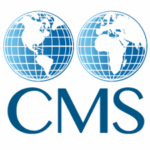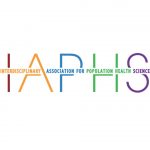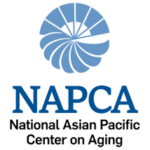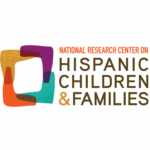Kim and Fredriksen-Goldsen Publish Article on Intersectional Health Disparities
CSDE Affiliates Hyun-Jun Kim (Social Work) and Karen Fredriksen-Goldsen (Social Work), along with co-authors Hailey H. Jung and Austin Oswald, published an article in Social Science & Medicine, on “Intersectional Health Disparities Among U.S. Midlife and Older Adults Focusing on Sexual Orientation and Race and Ethnicity: Evidence from a Population-Based Study.” The authors examined health disparities by race, gender, and sexual orientation using the 2013-2023 National Health Interview Survey data and tested for synergistic effects, that is, whether excess intersectional disparities contribute to health risks beyond the sum of disparities from single marginalizations. The data suggests health disadvantages driven by synergistic effects for Hispanic men, Blacks, and additional people of color among sexual minorities, and inverse health disparities for Hispanic and Asian sexual minority women. (read more)
|
 |
Romanelli Publishes Article on Intersectional Disparities in Digital Health and Mental Health Service Use
Rocha Beardall Publishes Article on Indigenous Data Inclusion and the Colonial Politics of Recognition
CSDE Affiliate Theresa Rocha Beardall (Sociology) recently published an article on “Indigenous Data Inclusion and the Colonial Politics of Recognition“, in Native American and Indigenous Studies. Rocha Beardall and co-author Meredith Alberta Palmer explore two consequences that arise from data inclusion within the context of Indigenous peoples’ relationship with the U.S. colonial state. First, the authors assert that data demands often lack direct collaboration with Indigenous nations and agencies, resulting in data inclusion that reifies and legitimates exploitative U.S. colonial structures. Second, the articulation of Indigenous life using statistical data analyses risks solidifying the racialization and categorization of Indigenous people in ways that obviate their political authority by rendering them as populations rather than polities. Rocha Beardall and Palmer conclude by offering two Indigenous-led examples of data collection and data communication that refuse Indigenous erasure and advance Indigenous futures. (read more)
|
 |
Okonek and Wakefield Author Article on a Parametric Survival Model for Child Mortality
CSDE External Affiliate Taylor Okonek (Macalester College), CSDE Affiliate and Executive Committee Member Jon Wakefield (Statistics and Biostatistics), and co-author Katie Wilson just published an article in Demographic Research, titled “A parametric survival model for child mortality using complex survey data.” Modern demographic methods for estimating a full mortality schedule for children have been developed for countries with good vital registration and reliable census data but perform poorly in many low- and middle-income countries (LMICs). Okonek, Wilson, and Wakefield propose a parametric, survey-weighted (pseudo-likelihood) approach and apply it to survey data from four countries in sub-Saharan Africa. (read more)
|
 |
Raftery Publishes Article on Climate Change Prospects and Speaks to UW News
CSDE Affiliate Adrian Raftery (Statistics) spoke to UW News to share insights from a recent paper, “Mitigation efforts to reduce carbon dioxide emissions and meet the Paris Agreement have been offset by economic growth,” published in Communications Earth & Environment. Raftery and co-authors used data from 2015–2024 to probabilistically assess the changes in climate change prospects associated with emissions since the Paris climate agreement was signed in 2015.Carbon intensity declined (i.e., improved) substantially over that period, but overall carbon emissions rose, due to the rapid rise in world GDP, which more than canceled out the progress made. The chance of staying below 2 °C remained low, at 17%. However, the chance of the most catastrophic climate change, above 3 °C, has gone down substantially, from 26% to 9%. (read more)
|
 |
|
|
*New* CSDE Computational Demography Working Group (CDWG): Lauren Woyczynski and Jessica Godwin (11/12/25)
|
When: November 12, 2025 from 10 – 11 am
Where: Raitt 223 and on Zoom
On November 12, CSDE’s Computational Demography Working Group will host CSDE Trainee Lauren Woyczynski (Sociology) and CSDE Staff Jessica Godwin (Statistical Demographer & Training Director).
The University of Washington Elections Database (UWED) project, led by CSDE Affiliate Scott Allard (Public Policy & Management) and CSDE External Affiliate Jake Grumbach (Berkeley), offers publicly available data on ballots, registered voters, and voting-age population at the precinct level in Washington from with differing temporal availability from 2007-2024. Funded by the state legislature, the UWED team standardizes these data across time and data type and adds enhancements using address geocoding and estimates of racial demographics using BISG. In this talk, Godwin and Woyczynski will discuss the data processing pipeline developed to address several pain points in the processing of UWED data, many of which are common to large-scale and heterogenous administrative data.
(read more)
|
 |
*New* UW Office of Research Seminar Series: Working With Foundations (register by 11/12/25)
|
Join UW Office of Research leadership, staff from the Office of Corporate & Foundation Relations, and featured faculty to learn how foundations operate and how to strengthen grant-seeking efforts with private philanthropic funders. The online seminar will be 11:30 a.m. to 1 p.m., Friday, Nov. 14. Register by Nov. 12. The link will be sent upon registration.
(read more)
|
 |
Dutch Demography Day 2026: Call for Papers (11/12/25)
|
The Netherlands Demographic Society (NVD) invites you to join the 18th edition of the Dutch Demography Day on Wednesday, February 4, 2026 in the Academy Building of Utrecht University (Domplein).
At the conference, the most recent findings in the field of population studies will be presented, including family and fertility, migrants and migration, health, mortality and longevity, population ageing, population growth and decline, and urbanization. The scientific programme comprises a Keynote Address, several rounds of parallel sessions and a poster session.
(read more)
|
 |
CSDE Science Core – Upcoming Workshop
|
Each quarter, CSDE offers 3-5 workshops on data sources, statistical and biomarker methodology, introductions to analysis programs, and more, all given by CSDE staff and faculty affiliates. These workshops can include hands-on training in novel methods and programming, lectures on innovative data sources, and discussions of important issues in research and data collection.
(read more)
|
 |
*New* Indigenous Food Ways & Mental Health: Emma Elliott and Michael Spencer (11/13/25)
Please join the UW Consortium for Global Mental Health and the Population Health Initiative for on Thursday, November 13 from 10 – 11 am PST for Indigenous Food Ways & Mental Health—a conversation between CSDE Affiliate Michael Spencer (Ballmer Endowed Dean and Professor, Social Work) and Dr. Emma Elliott. They will discuss their research and what they’ve learned about the interconnection of indigenous food ways and total wellbeing, within an indigenous knowledge and theoretical framework that holds profound promise for public health. (read more)
|
 |
Countering Anti-Immigrant Sentiment: What We Know From Research (11/17/25)
|
Join the Center for Migration Studies of New York (CMS) for its annual Academic & Policy Symposium, “Witness to Hope: Promoting Just & Humane Migration Policies”, on Monday, November 17, 2025.
With anti-immigrant rhetoric and policies on the rise in the US and globally, how can evidence-based research help us understand and counter these narratives? Join leading scholars for a discussion on understanding the dynamics of anti-immigrant sentiment, as well as strategies to change public opinion and advance more humane policy responses.
(read more)
|
 |
How to Tuesday: IAPHS Webinar Series (starts 11/18/25)
|
IAPHS invites you to join How-To Tuesday, a new 45-minute webinar series designed to deliver clear, actionable guidance on topics that matter most to population health professionals. Whether you’re looking to sharpen your time management, navigate journal reviews, or set a research agenda, How-To Tuesday brings you the tools to thrive. Register here.
Upcoming Sessions Include:
- November 18 – “How to Define Your Research Agenda” with Jennifer Karas Montez
- December 2 – “How to Communicate Your Research to Non-Scientists”
(read more)
|
 |
Community-based Circular Economy Strategies to Improve Local Well-being and the Environment (11/20/25)
|
Award amount: $150,000 (Canadian)
OR internal deadline: 11/5/2025
UW OSP deadline: 11/20/2025
Sponsor deadline: 12/1/2025
Program description: NAPCEA is calling for proposals from organizations to support projects that will help North American communities implement circular economy initiatives and strategies to improve local well-being and the environment. The way resources are being extracted, used and then disposed of in the current linear economy model is putting pressure on natural systems, communities and public health. A circular economy shifts toward sustainable production and consumption patterns by improving management and efficient use of materials and resources throughout their life cycles (from extraction to recovery). (read more)
|
 |
Wittgenstein Centre Conference 2025: Demographic Perspectives on Migration in the 21st Century (11/19/25 – 11/21/25)
|
The conference will be held in hybrid format.
Migration is a highly debated yet divisive topic in today’s public and policy discourse. In low fertility societies, migration is the main driver of population change and is essential for maintaining a stable labour force. Although it is often presented in simplistic terms, migration is a complex phenomenon shaped by the interplay of multiple drivers and barriers.
(read more)
|
 |
National Research Center on Hispanic Children & Families Fellowship for Early Career Investigators (11/21/25)
|
The National Research Center on Hispanic Children & Families has just opened the application period for its fellowship program for early career investigators researching economic well-being or early care and education (ECE) among Hispanic children and families in the United States. The program will provide seed research funds and valuable mentoring experiences to early career investigators. Fellows will receive $7,000 for use in research and professional development activities. More information can be found on our website.
(read more)
|
 |
UW REACH Implementation and Evaluation Fellowship (11/28/25)
|
The University of Washington Research and Engagement on Adaptation for Climate and Health (REACH) Center is accepting applications to the Implementation and Evaluation Fellowship until November 28. The Fellowship provides teams of fellows with $60,000 of funding and training to conduct an implementation science project to evaluate or improve the uptake of a climate and health-related project or program. Fellows apply and participate as teams of 2-3 public health or healthcare practitioners and researchers.
(read more)
|
 |
UW Latino Center for Health Small Grants Program: Proposals due 12/15/25
The Latino Center for Health (LCH) at the University of Washington invites applications to the LCH’s Small Grants Program, a $20,000 grant to fund research focused on Latinx health in Washington state. The theme for the 2026-2027 program is Immigrant Health in a Changing Policy and Practice Landscape. Applicants should include a partnership between a UW investigator and a community-based organization that serves Latinx individuals, families, or communities. Applications are due on December 15. (read more)
|
 |
Young Scientist Summer Program (YSSP) at the International Institute for Applied Systems Analysis (IIASA) (01/12/26)
|
The Young Scientist Summer Program (YSSP) at the International Institute for Applied Systems Analysis (IIASA), is currently accepting applications to its 2026 program. The closing date is January 12, 2026 at midnight CET.
The program, which takes place from June to August, is designed for PhD students (ideally about 2 years prior to receiving their PhD) working on a topic compatible with ongoing research at IIASA and a wish to explore the policy implications of their work.
(read more)
|
 |
*New* Call for Submissions: Conference and Special Issue on How Policy Contexts Impact Population Health in the US (01/15/26)
The Center for Aging and Policy Studies (CAPS) and the Center for Policy Research (CPR) will host a conference on June 8 and 9, 2026 at Syracuse University to advance knowledge on the connections between policies and population health in a changing U.S. context. In conjunction with the CAPS-CPR conference, The Milbank Quarterly will publish a special issue in 2027. Authors intending to submit a paper to The Milbank Quarterly special issue are strongly encouraged to submit an abstract of the paper by January 15. (read more)
|
 |
*New* IPUMS 2026 Data Intensive Research Conference – Minneapolis, MN (Apply by 01/30/26)
|
Abstract submissions are now open for the 2026 Data-Intensive Research Conference. The 2026 conference theme is Novel Data Linkages and Innovative Life Course Research. Enriching population data through data linkage creates novel data sources that can shed light on life course processes. Linking across time allows for the examination of transitions and trajectories and linking to contextual information situates the experiences of individuals and populations in their environments. Review the call for proposals and submit an abstract.
(read more)
|
 |
Russell Sage Foundation – Social, Political and Economic Inequality Research Grants (03/11/26)
|
Award amount: $200,000
Sponsor deadline: 03/11/2026
Program description: The Russell Sage Foundation’s (RSF) program on Social, Political, and Economic Inequality supports innovative research on the factors that contribute to social, political, and economic inequalities in the U.S., and the extent to which those inequalities affect social, political, psychological, and economic outcomes such as educational and labor market access and opportunities, social and economic mobility within and across generations, and civic participation and representation. (read more)
|
 |
Russell Sage Foundation – Causal Research on the Criminal Justice System for Early-Career Scholars (04/01/26)
|
Award amount: $100,000
Sponsor deadline: 04/01/2026
Program description: The Russell Sage Foundation (RSF), in collaboration with the Criminal Justice program at Arnold Ventures (AV) is pleased to announce its first annual grants competition for early-career scholars. Our goal is to cultivate a pipeline of researchers conducting causal research on the criminal justice system. Criminal justice policies and practices include the work of police, courts, jails, prisons, probation and parole, and immigration detention. (read more)
|
 |
IPUMS Data Update: MET2023 and MEPS
|
IPUMS USA
IPUMS USA has extended MET2023, which identifies 2023 metropolitan areas, to the 2012-2021 ACS/PRCS samples. A new variable, METPOP20, reports the 2020 population of 2023 metropolitan and micropolitan areas. We have also made several revisions, including capturing additional multigenerational households in MULTGEN and expanding the property tax and utility cost variables (PROPTX99, PROPINSR, COSTGAS, COSTFUEL, COSTWATR) to ensure that IPUMS top codes match Census Bureau top codes.
IPUMS HEALTH SURVEYS
IPUMS MEPS now offers data from the 2023 MEPS sample. This release includes 1,100 variables from the Full Year Consolidated, Condition, Event, Prescribed Medicine, Appendix to the Event, and Pooled Variance files. New variables added with this release include information about COVID and Long COVID at the round level.
(read more)
|
 |
PSU Resource for Finding Federal Data During Shutdown
Join the Mobility and Migration Modeling Intercomparison Project (3MIP)
|
The Mobility and Migration Modeling Intercomparison Project (3MIP) invites you to join a new initiative to advance the modeling of migration and mobility in the context of climate change.
Over the past decades, migration modeling capacity has expanded considerably, with diverse approaches including ABM, IAM, Gravity, Radiation, and others. Similar to how model intercomparison projects (MIPs) such as AgMIP and ISIMIP have strengthened agricultural and climate modeling, 3MIP aims to improve the robustness, comparability, and usability of migration models. By standardizing methods, characterizing uncertainties, and setting shared benchmarks, we hope to build a foundation for stronger science and policy applications.
(read more)
|
 |
Invitation to Join Work and Family Researchers Network (WFRN)
|
Social researchers are invited to join a global community of scholars, educators, and practitioners dedicated to advancing research and practice on work, family, and well-being. You can learn more about the WFRN at this link. Their upcoming conference will focus on caregiving across the life course. More about the 2026 conference can be found at this link.
(read more)
|
 |
Volunteer Researchers Needed for Community-Based Participatory Research
|
CSDE Affiliate Melanie Martin is looking for a graduate student collaborator(s) to help with a year-long community-based participatory research project based in a local Lake City elementary school to study the impacts of culturally sustaining and asset-based pedagogical approaches in early education.
(read more)
|
 |
Data Resource: Dewey Data
|
Dewey Data is a research platform that provides access to third-party datasets across a variety of data categories including foot traffic, construction permits, healthcare, workforce, consumer behavior, and transportation.
University of Washington faculty, students, and researchers are eligible for access and must register an individual account. Follow this link to learn about how to register.
(read more)
|
 |
|
|

